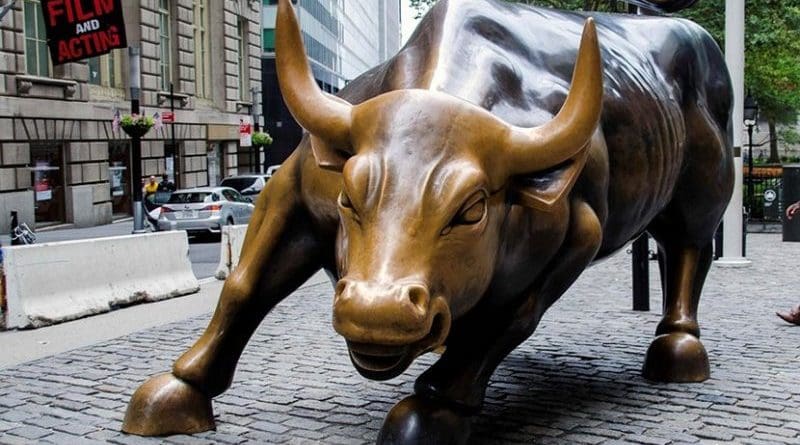Share The Wealth Vs. Waste The Wealth – OpEd
In 2020, the Trump tem’s last full year, U.S. households annually making over $1 million faced fewer tax audits than households with incomes low enough to qualify for the Earned Income Tax Credit. That had never happened before.
But the blame for this plutocratic about-face, a new Americans for Tax Fairness report makes clear, doesn’t belong to the Trump crew alone. Rich people-friendly members of Congress gave Donald Trump his tax-cutting playbook. Ever since 2010, they had been squeezing the IRS budget big-time, forcing the agency “to drastically pull back on auditing the ultra-wealthy.”
How drastically? Between 2010 and 2020, audits on millionaires dropped a whopping 92 percent.
Our rich have taken full advantage. Close to a thousand taxpayers making over $1 million per year, Senator Ron Widen from Oregon has just pointed out, haven’t even bothered “to file tax returns over multiple recent years.”
Widen, the chair of the Senate Finance Committee, wants to see the IRS devote more of the $80 billion increase in funding the agency gained last year — after President Biden signed the Inflation Reduction Act into law — to helping increase the audit rate on America’s richest.
Republicans in Congress, meanwhile, are pushing a budget for next year that would chop IRS funding by $67 billion. That deep a cut, Americans for Tax Fairness calculates, would leave the nation right back where the Trump gang left it: with millionaires pocketing one-sixth of the nation’s household income getting audited less than 1 percent of the time.
But even if we had an IRS with the auditing capacity to take on our super rich, those rich would have little real cause for concern. Yes, many rich do currently cheat on their taxes. But most rich don’t have to cheat or even cut corners. Our deepest pockets can legally sidestep any significant tax bill, thanks to a wide constellation of loopholes their lobbyists have managed to shoehorn into federal tax laws.
One example of the games rich people can now play — and always win: the donate-to-nonprofits dodge.
Most of us hear the word “nonprofit” and think Red Cross or some other familiar charity. These traditional charities fall under section 501(c)(3) of the U.S. tax code. People who donate to 501(c)(3)s can get an income tax deduction for their donations.
Other nonprofits — most notably those that come under the tax code’s 501(c)(4) — can’t offer their donors a charitable deduction at income tax time. But these C4 nonprofits can engage in activities that have next to nothing to do with providing charitable services. They can own companies indefinitely, as Forbesdetails, and benefit private individuals. They can lobby lawmakers as much as they want and “get directly involved in politics.”
This flexibility that C4s offer became particularly attractive to America’s deepest pockets in 2015. Lobbyists bankrolled by the billionaire Koch family wiggled into the tax law that year a charming little loophole that lets our super rich take shares of stock they own that have appreciated handsomely in value and pass these shares to C4s — without having to pay either a gift tax or a capital gains tax on the share transfer.
The C4 receiving these hefty gifts of shares, Forbes adds, “can then sell the stock, capital gains tax–free, or hold on to it indefinitely, reaping the dividends.”
Thanks to this loophole, note investigative journalists Judd Legum and Tesnim Zekeria, billionaires like Charles Koch can now use their allied C4s “to spend as much money as they want on political campaigns without disclosing their spending or paying taxes.”
Our current tax code abounds in shady tricks like this C4 maneuvering, tricks that let our super rich take dollars that should be filling the public purse and move them into the bank accounts of “nonprofits” dedicated to doing whatever they can to keep our wealthiest ever more wealthy.
How do the rich justify this massive tax code manipulation? We simply can’t count on our government, these rich insist, to spend our tax dollars sensibly. The rich make this point at every opportunity they can.
Harold Hamm, for instance, has fracked his way to a fortune now worth close to $20 billion. The thought of paying taxes outrages him almost as much as the $975 million that a divorce settlement eight years ago had him shelling out to his second wife.
“I haven’t seen anything,” says Hamm, “to lead me to believe that the government has done very well with the money America has already given them.”
This billionaire emphasis on “government waste” has served, over the years, to justify cutting taxes across the board, even for the wealthiest among us. But this “government waste” line seems to be losing some oomph.
The main reason? The enormously wasteful spending of our rich has become considerably more conspicuous. We now have entire publications devoted to chronicling how opulently the rich operate, at every level of their lives. Their private jets. Their multiple mansions. Their cute little trinkets.
In Los Angeles, as Mansion Global reports, we have the architect Paul McClean specializing in transparent-bottom “multi-level” swimming pools that give the wealthy and their house guests “the illusion of floating in the air.”
“It’s fun to see people swimming overhead,” says McClean of his aquatic creations.
Also fun for our most fabulously fortunate: splurging on their pets with everything from $152 designer poop-bag holders and $1,100 wooden doggie bowls to $12,000 miniature playhouses.
These same rich, of course, seldom miss an opportunity to splurge on themselves. True Residential offers fridges that can run over $25,000.
“Most of our customers are not looking to keep up with the Joneses,” muses Chelsea McClaran, the True Residential brand manager. “They’re looking to have something that nobody’s ever seen before.”
Maybe one day we’ll be able to give these rich something they figured they would never ever see: an America seriously striving to become a much more equal place.

